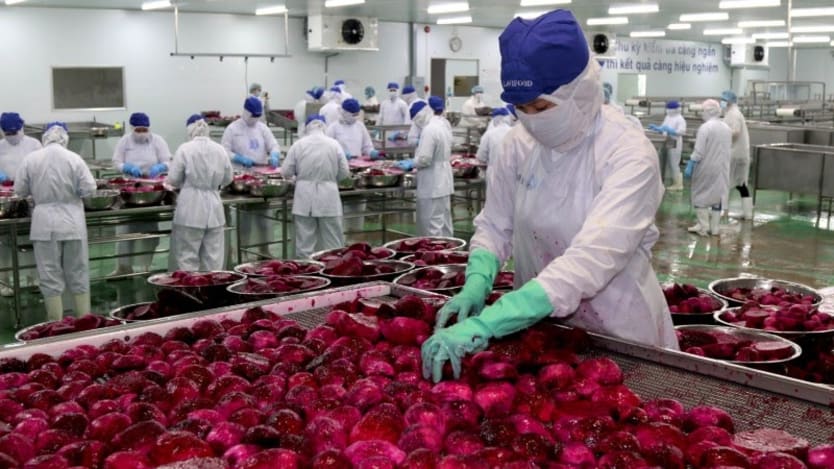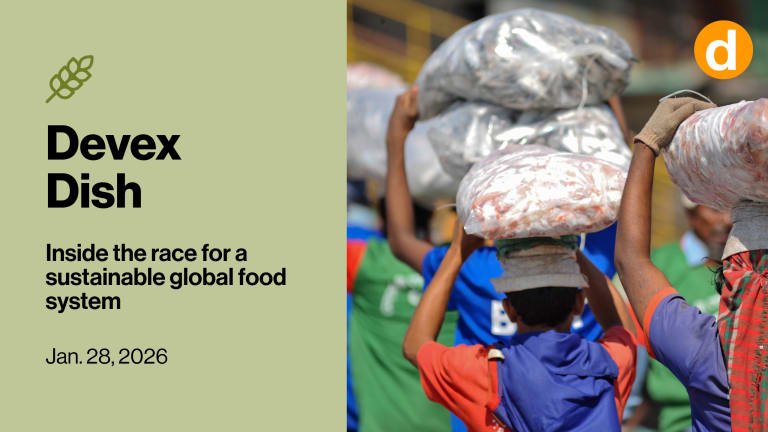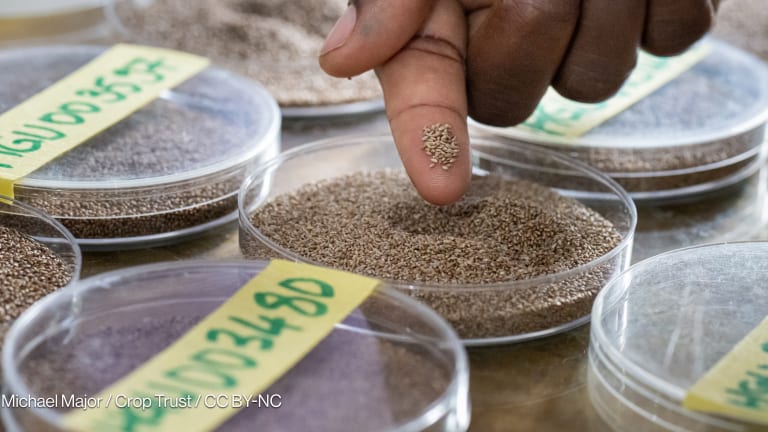
The COVID-19 pandemic is putting enormous strain on public health systems around the globe, and millions of people in the world’s most advanced economies are in some form of quarantine. We know that the human toll will be high and that massive efforts to turn the tide carry a heavy economic cost.
To reduce the risk of an even greater toll — shortages of food for millions, even in affluent countries — the world must take immediate actions to minimize disruptions to food supply chains.
Prevention costs less.
—A globally coordinated and coherent response is needed to prevent this public health crisis from triggering a food crisis in which people cannot find or afford food.
More on COVID-19
► WFP repackages efforts to reach hungry children as COVID-19 closes schools
► Opinion: Education in the time of COVID-19
► What does a COVID-19 response look like with limited water?
For now, COVID-19 has not entailed any strain on food security, despite anecdotal reports of crowded supermarket sieges. While there’s no need for panic — there is enough supply of food in the world to feed everyone — we must face the challenge: an enormous risk that food may not be made available where it is needed.
The COVID-19 outbreak, with all the accompanying closures and lockdowns, has created logistical bottlenecks that ricochet across the long value chains of the modern global economy. Restrictions of movement, as well as basic aversion behavior by workers, may impede farmers from farming and food processors — who handle most agricultural products — from processing. Shortage of fertilizers, veterinary medicines, and other input could also affect agricultural production.
Closures of restaurants and less frequent grocery shopping diminish demand for fresh produce and fisheries products, affecting producers and suppliers, especially smallholder farmers, with long-term consequences for the world’s increasingly urbanized population — be they in Manhattan or Manila.
Uncertainty about food availability can induce policymakers to implement trade-restrictive measures in order to safeguard national food security. Given the experience of the 2007-2008 global food price crisis, we know that such measures can only exacerbate the situation.
Export restrictions put in place by exporting countries to increase food availability domestically could lead to serious disruptions in the world food market, resulting in price spikes and increased price volatility. In 2007-2008, these immediate measures proved extremely damaging, especially for low-income food-deficit countries and to the efforts of humanitarian organizations to procure supplies for the needy and vulnerable.
We should all learn from our recent past and not make the same mistakes twice. Let’s not turn this health crisis into an entirely avoidable food crisis.
Policymakers must take care to avoid accidentally tightening food-supply conditions. While every country faces its own challenges, collaboration — between governments and the full gamut of sectors and stakeholders — is paramount. We are experiencing a global problem that requires a global response.
We must ensure that food markets are functioning properly and that information on prices, production, consumption, and stocks of food is available to all in real-time.
The Food and Agriculture Organization urges countries to meet the immediate food needs of their vulnerable populations and boost their social protection programs. We must keep food supply chains flowing by, for example, not imposing measures that would restrict trade and the mobility of commodities. And it is possible to gain efficiencies by reducing waste and food losses, resolving logistics bottlenecks, and aiming to reduce costs related to trade.
This approach will reduce uncertainty and allow producers, consumers, traders, and processors to make informed decisions and to contain unwarranted panic behavior in global food markets.
The health impacts of the unfolding COVID-19 pandemic on some of the poorest countries are still unknown. Yet, we can say with certainty that any ensuing food crisis as a result of poor policymaking will be a humanitarian disaster that we can avert.
We already have 113 million people experiencing acute hunger; in sub-Saharan Africa, a quarter of the population is undernourished. Any disruptions to food supply chains will intensify both human suffering and the challenge of reducing hunger around the world.
We must do everything possible to not let that happen. Prevention costs less. Global markets are critical for smoothening supply and demand shocks across countries and regions, and we need to work together to ensure that disruptions of food supply chains are minimized as much as possible.
COVID-19 forcefully reminds us that solidarity is not charity, but common sense.
This focus area, powered by DSM, is exploring innovative solutions to improve nutrition, tackle malnutrition, and influence policies and funding. Visit the Focus on: Improving Nutrition page for more.








